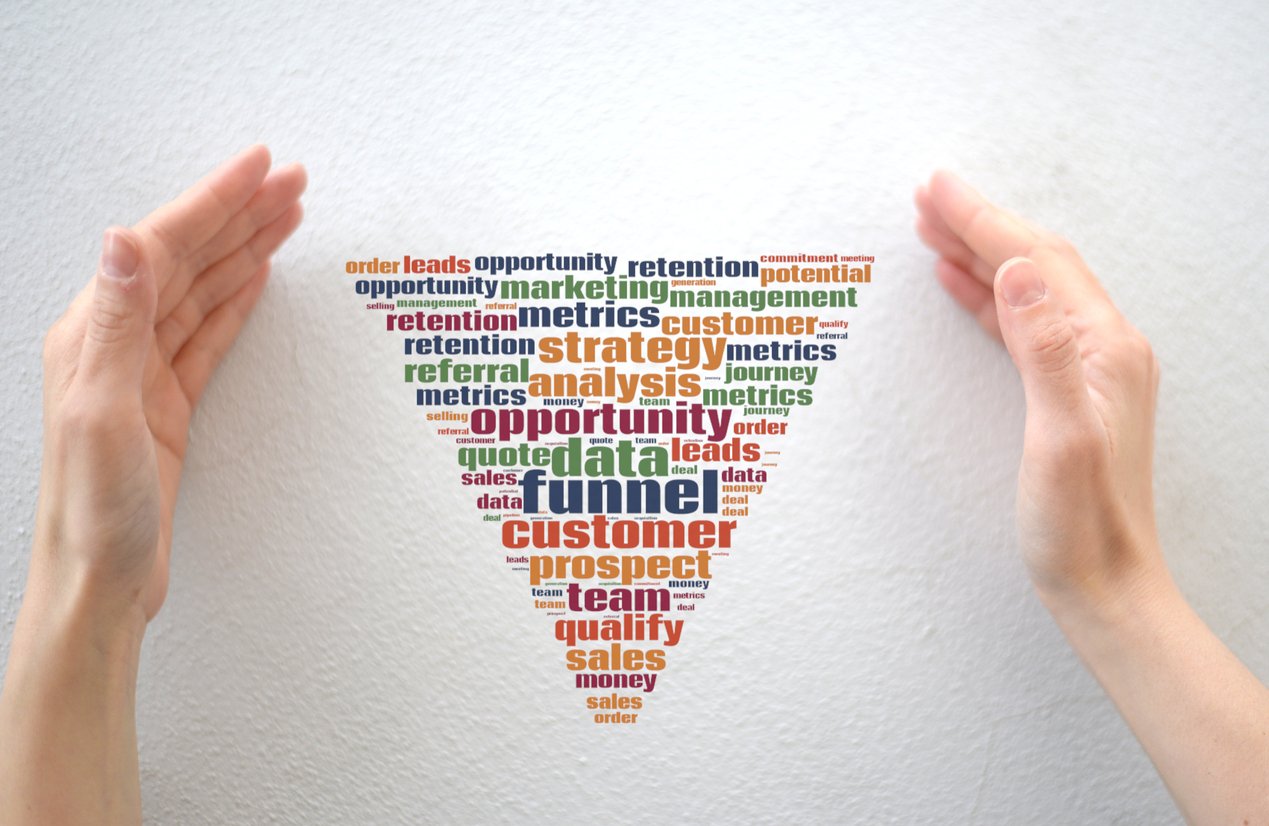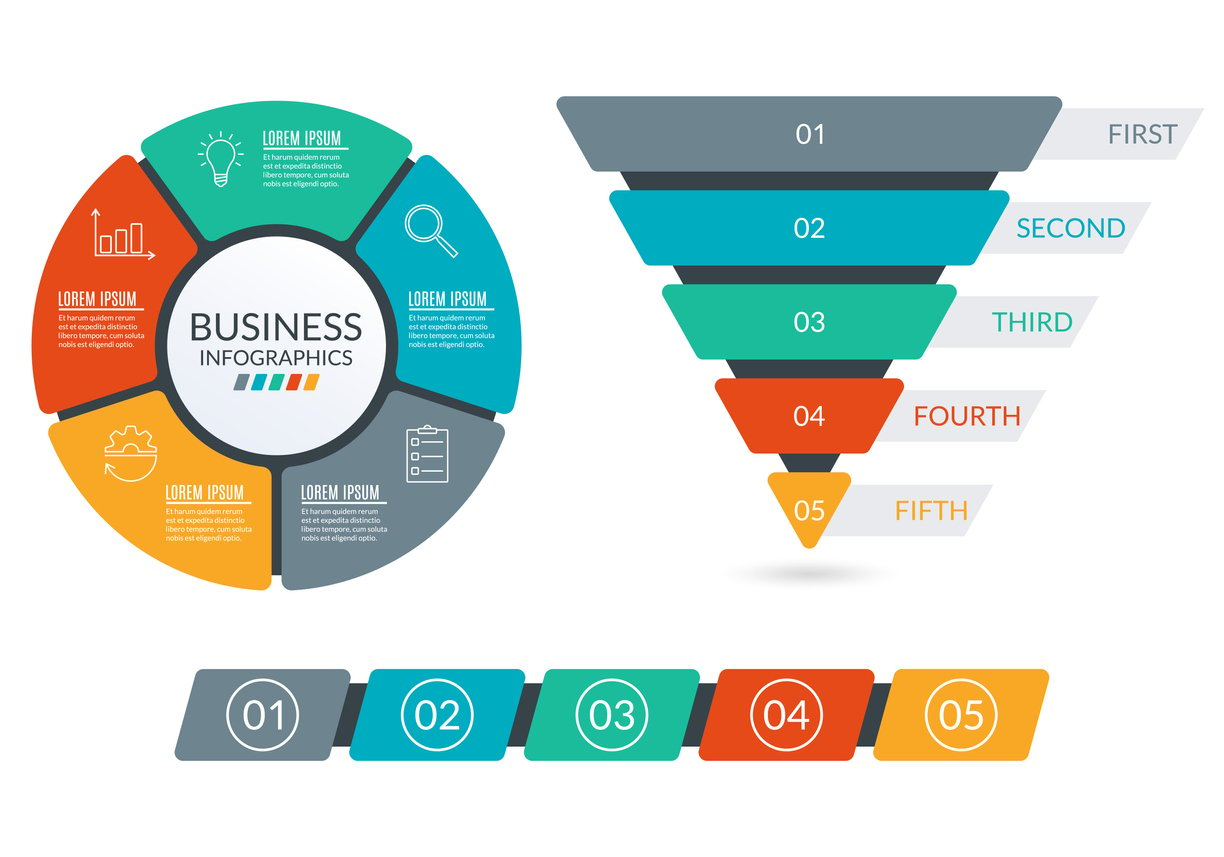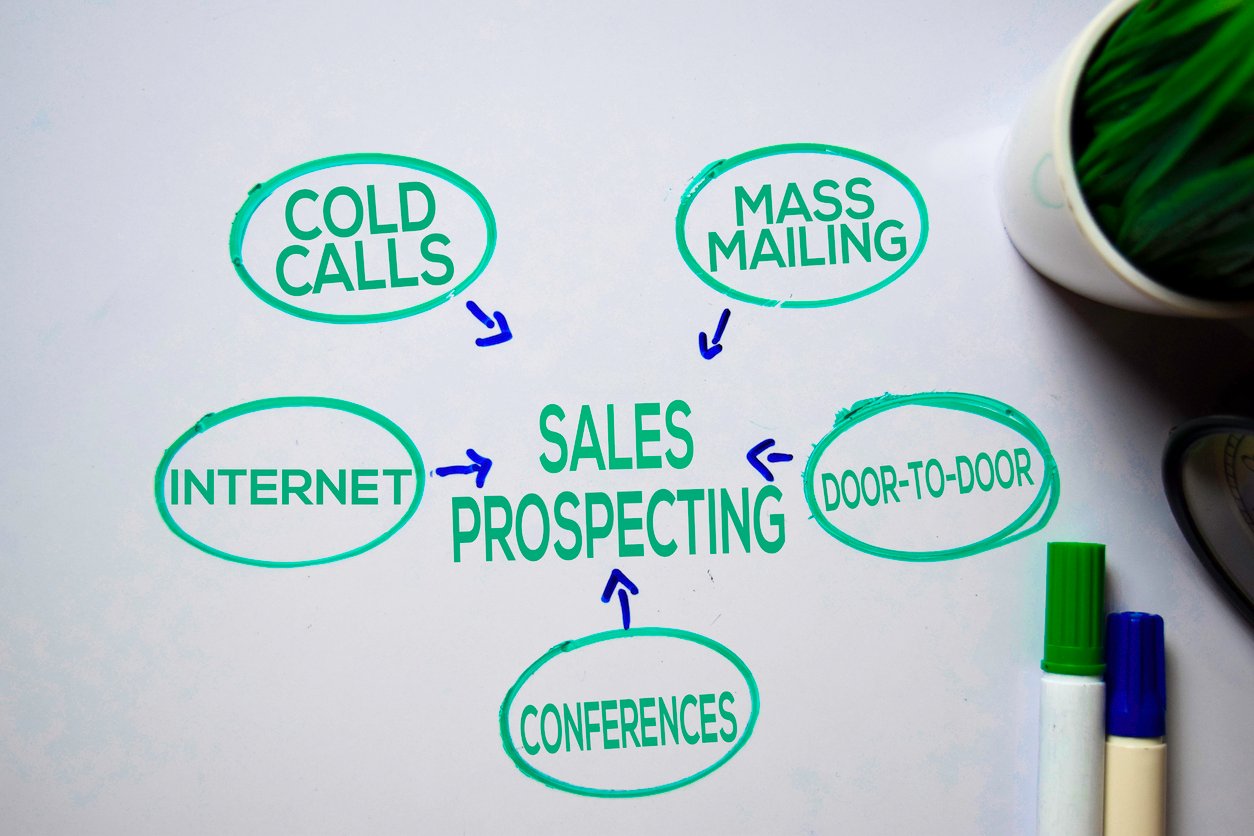
6 Sales Methodology Examples for B2B SaaS Clients
 Updated on
Updated on
 By Carlos Correa
By Carlos Correa
Carlos Correa
Carlos has been involved in the sales space for well over ten years. He began in the insurance space as an individual sales agent, managing teams as s...
learn more
Carlos Correa
Carlos has been involved in the sales space for well over ten years. He began in the insurance space as an individual sales agent, managing teams as s...
Table of Contents
Table of Contents
Ladies and Gentlemen welcome to the world of sales, where the art of persuasion meets the science of strategy.
Whether you're a seasoned pro or just starting, you'll quickly realize that selling is both an art and a science. It's the art of understanding your customer's needs, building rapport, and telling a compelling story. It's the science of tracking your progress, analyzing data, and testing new techniques.
A successful sales process is the backbone of a thriving business, and choosing a suitable sales methodology is crucial. Sales management methodology is a set of guidelines and best practices that ensure a consistent and efficient approach to selling. With the correct sales methodology, businesses can streamline their sales processes, improve their close rates, and increase revenue.
But with so many different sales methodologies, it can take time to figure out where to start.
That's why we're here today, to introduce the world of sales methodologies and to help you choose the right one for you and your team.
What Is a Sales Methodology?

A sales methodology is a systematic approach to selling that defines a transparent process for identifying, pursuing, and closing new business opportunities. The best sales methodologies outline the steps involved in the sales process, from initial prospecting to post-sale follow-up.
By adhering to a sales methodology, sales teams can ensure they make the most of each opportunity to maximize their chances of closing deals.
Here is a table summarizing the key components of a Sales methodology:
|
Components |
Process |
|
The act of identifying and finding potential customers. |
|
|
Qualification |
Determining if a lead is a good fit for a product or service. |
|
Needs Assessment |
Understanding the customer's needs, pain points, and objectives. |
|
Presentation |
Demonstrating how a product or service can meet the prospect's needs. |
|
Handling Objections |
Anticipating and addressing any concerns or objections the client may have. |
*Please note: Sales methodologies can vary, and this table is a basic overview of standard components. The specific components and their order may differ based on the methodology used.
A sales methodology is essential for sales teams to improve their performance and achieve better results. With a well-defined sales methodology, sales teams can focus on the most critical activities, effectively communicate with customers, and sell more products.
To take sales efforts to the next level, consider using Ringy CRM to help streamline the sales process and gain actionable insights into sales performance.
Key Components of a Sales Methodology
A strong sales methodology provides a framework for salespeople to consistently convert leads into customers. Here are the core components that define the most successful methodologies:
Building Rapport and Trust With Prospects
This initial step focuses on creating a genuine connection with potential buyers. Effective salespeople use active listening and open-ended questions to understand the prospect's background and build trust. This foundation is crucial for a successful sales conversation.
Understanding Customer Pain Points and Needs
In this phase, the salesperson utilizes their understanding of the prospect and their product or service to uncover the customer's specific challenges and unmet needs. By using various sales methodologies, like needs identification in Selling by Needs Satisfaction, salespeople can effectively target their solutions.
Presenting Tailored Solutions and Value Propositions
Once the salesperson grasps the customer's pain points, they can present their product or service as a solution that directly addresses those needs. This is where crafting a compelling value proposition, a core concept in MEDDIC Sales Methodology, becomes key. The focus should be on the benefits the customer will experience, not just the features of the product.
Overcoming Objections and Addressing Concerns
Prospects often have questions and concerns. A strong sales methodology equips salespeople to anticipate objections and confidently address them. This might involve using techniques like SPIN Selling, which focuses on asking insightful questions to guide the prospect toward recognizing the value of the solution.
Closing the Sale and Nurturing Long-Term Relationships
The ultimate goal is securing a sale. However, the best methodologies go beyond simply closing the deal. They emphasize building long-term relationships with customers, ensuring their satisfaction, and fostering repeat business.
Types of Sales Methodology
There are various sales methodologies, each with unique features and advantages, which we will explain in more detail.
SaaS Sales Methodology
Software-as-a-Service (SaaS) is a rapidly growing industry, and sales professionals in this space must be equipped with the correct methodology to succeed. The SaaS sales methodology tailors products to meet the industry's unique needs, including the ability to sell to a wide range of customers and the requirement to understand the client's existing tech stack.
A SaaS sales methodology is designed explicitly for selling cloud-based applications.
This software sales methodology concentrates on providing a solution that meets each customer's unique needs and requirements while delivering the application through the internet instead of installing it on-premises.
The following is a list of crucial steps in a SaaS sales methodology:
- Qualification - Determine if a prospect is a good fit for the SaaS product and if they have a need that the software can meet.
- Need Analysis - Understander the customer's needs and requirements. This may include a review of the customer's current processes and systems. Discussions about the business owner's goals and objectives are generally included in this process.
- Demonstration - The sales agent demonstrates the SaaS solution to the customer, highlighting how it can improve their current processes.
- Proposal - Sales staff prepare a customized proposal that includes pricing and other relevant information, such as implementation and training.
- Closing - The final step is closing the sale while ensuring customer satisfaction by providing ongoing support and resources.
SaaS sales methodology differs from traditional sales approaches because it focuses on the software and its ability to meet the customer's needs rather than just selling a product. The method is well-suited for selling SaaS solutions because it helps salespeople understand the customer's pain points and provide a customized solution that meets those concerns.
SNAP Sales Methodology
The SNAP sales methodology is a customer-focused sales approach that helps salespeople quickly identify the client's needs and provide a solution that fits the criteria.
This sales methodology concentrates on four key steps:
- Scenario - Salespeople are presented with a scenario highlighting a problem or challenge the prospect faces.
- Need - The agent identifies the customer's needs and the issue's impact on their company..
- Aspiration - Sales employees showcase a vision of the future and the positive outcomes the customer can accomplish by resolving these hurdles.
- Path - A specific solution is offered to clients to help them achieve their aspirations.
A SNAP sales methodology closes deals quickly and effectively by addressing the prospect's requirements while providing a product or service that meets those needs. By presenting a scenario, highlighting the impact of the problem, and offering a resolution to the issue, salespeople can engage potential clients and build credibility.
B2B Sales Methodology

B2B sales require a different approach than B2C sales, as the prospect is a business rather than an individual. The B2B sales methodology emphasizes building relationships with decision-makers, understanding their business objectives, and delivering solutions to fill those gaps. Account-based selling (ABS), consultative selling, or a combination of both are typically utilized in the B2B sales methodology approach.
B2B sales can be complex and require a different approach than direct-consumer sales, as the decision-making process often involves multiple stakeholders and higher-value purchases.
The following steps are in a typical B2B sales methodology:
- Lead generation - Identifying potential clients and generating lead lists is the first step. Referrals, email campaigns, trade shows, and online advertising are methods utilized to generate more leads.
- Qualification - Determining if leads are a good fit for a service or product helps sales reps focus on prospects with high potential closing rates. Factors such as the size of the business, budget, industry, and decision-making authority should all be evaluated before labeling the lead qualified.
- Solution Presentation - Sales agents show the prospect the solution and highlight the advantages after qualification. This step sets the tone for the rest of the customer journey and is crucial in making a lasting impression.
- Discovery - Employees use the discovery process to gather information about the client's needs and pain points.
- Proposal - Based on the information gathered during the discovery process, the salesperson prepares a proposal outlining the software and its benefits to the customer. The proposal should include pricing, timelines, and other relevant details.
- Negotiation - Involves working with the client to agree on the proposal. This may consist of negotiating terms, pricing, and further information to ensure that both parties are satisfied.
- Close - Once an agreement is reached, the salesman works to close the deal by securing a commitment from the customer. This may involve finalizing contracts and setting up any necessary arrangements to get started.
- Implementation - The final step is implementing the solution, which involves working with the purchaser to ensure the solution is installed and configured correctly. This step is crucial for ensuring customer satisfaction and building long-term relationships.
A well-executed B2B sales methodology helps companies grow their organization while keeping customers happy. It is a win-win situation that boosts brand reputation and aids in generating more revenue.
Solution Selling
This method is a customer-focused approach that emphasizes understanding the customer's problems and offering solutions to match. Solution selling helps small businesses build long-term relationships with customers and provide them with value beyond the product.
In solution selling, the sales agents act as consultants, helping customers locate their issues and offering a product or service to assist with their problems.
The goal is to establish a solid relationship with the client rather than simply making a once-off sale. Solution selling differs from traditional product-focused selling, which involves pushing a product or service to the buyer without considering their specific requirements.
This approach is becoming increasingly popular in today's business environment, where purchasers seek more personalized experiences and want to work with organizations that understand their unique difficulties.
Here are five benefits of solution selling:
- Increased Customer Satisfaction - Helps to create more satisfied customers by providing personalized solutions.
- Improved Customer Retention - Assists in building long-term customer relationships, leading to improved client retention.
- Increased Sales - By providing tailored solutions to meet the prospect's needs, solution selling can increase sales.
- Improved Profitability - Solution selling can create more value for the customer, boosting profitability.
- Competitive Advantage - Differentiates an enterprise from its competitors by offering an individualized client experience.
Sales representatives must dig deep to find the potential purchaser's true requirements, so they can offer the best product to lift the weight off the customer's shoulders. By addressing the underlying business problems, solution selling helps customers resolve issues that affect their company's performance.
Consultative Selling
Consultative selling is similar to solution selling, focusing on understanding customer demands and how to resolve them. However, consultative selling takes a more in-depth approach, with the salespeople acting as trusted advisors to the prospective customer.
The consultative sales methodology includes several key steps, including:
- Building rapport and establishing trust with the customer.
- Conducting thorough needs analysis to understand the prospect's situation and requirements.
- Presenting customized solutions that meet those specific needs.
- Addressing any concerns or objections the client may have.
- Closing the sale and ensuring customer satisfaction.
In this method, the salesperson gathers data about the customer's business challenges and utilizes that information to suggest the best solution for their needs. The consultative sales methodology is well-suited for complex sales and can help salespeople build strong relationships with their customers, increase their closing rates, and improve customer satisfaction.
Challenger Sales

The Challenger sales methodology is based on the idea that traditional sales methods are only sometimes effective and that representatives need to be more assertive in their approach.
Sales agents are more aggressive, challenging the customer's current thinking and pushing them to try new solutions.
With aims to differentiate the salesperson and their solution from the customer's existing processes, beliefs, or assumptions, the Challenger sales methodology helps business owners consider an alternative option to what they're already utilizing.
Here are the four critical stages of the Challenger sales methodology:
|
Stage |
Description |
|
Problem Discovery |
Understanding the client's pain point and current processes |
|
Insight Generation |
Gathering customer business insights and analyzing them aids in uncovering new opportunities. |
|
Value Proposition |
Showing that a product or service is better than the alternative the customer is using can help build rapport. |
|
Customer Action |
Sales representatives must ensure the prospect takes action, such as a purchase or signing up for a trial, while providing support throughout the implementation process. |
A SaaS Challenger sales methodology is an effective strategy for startups and new entrants in the market. By questioning the customer's existing methods while highlighting a product's value proposition, companies can differentiate themselves from established players and build a successful brand.
SPIN Selling
SPIN Selling stands for Situation, Problem, Implication, and Need-Payoff. Salespeople use a four-step process to uncover customers' needs and personalize their pitch accordingly.
The four stages of a SPIN sales methodology are:
- Situation - Asks questions to gather information about the prospect's current situation, such as their business environment, goals, and challenges.
- Problem - Uncover the customer's specific problems or pain points. Identify areas the solution can assist with by asking in-depth questions.
- Implication - Probe further to understand the consequences of the identified issues. This stage helps to build rapport and credibility with the prospect while gaining a deeper knowledge of the situation's urgency.
- Need-Payoff - Present the benefits of the software while showcasing the positive outcomes the prospect can expect to achieve by addressing the implications.
The SPIN sales methodology is designed to be structured, helping salespeople have more effective and efficient customer conversations. Businesses that sell products with extended sales cycles and complex implementations find SPIN selling particularly important.
By using questions to discover client pain points, sales reps can create value that drives purchasers towards buying by creating urgency for the product.
How to Choose a Sales Methodology
Selecting the right sales methodology is crucial for optimizing your sales team's performance. Here's a roadmap to guide you:
Understand Your Business Needs
The first step is to gain a clear understanding of your company's specific goals and challenges. Consider factors like your product complexity, target customer profile, and desired sales cycle length. Different sales methodologies excel in various situations. For instance, Solution Selling is ideal for complex B2B products, while SNAP Selling might be a better fit for shorter sales cycles.
Research Different Sales Methodologies
There is a wide array of sales methodologies available, each with its own strengths and weaknesses. Conduct thorough research to understand the different approaches. Popular options include MEDDIC, which focuses on qualification, or Challenger Sale, which emphasizes challenging the customer's perspective.
Evaluate Fit Within Your Organization
Every sales methodology is unique. Assess how well each option aligns with your company culture, sales team skillsets, and existing processes. Consider conducting pilot programs to test a few methodologies and see which one resonates best with your team.
Consider Training and Implementation
Implementing a new sales methodology often requires training for your sales team. This ensures everyone understands the framework and can leverage it effectively. The chosen methodology should also be compatible with your CRM system or other sales enablement tools to facilitate smooth implementation.
Test and Iterate
Don't expect a perfect fit right away. A good sales methodology should be adaptable. Run trials with different approaches and gather feedback from your team and customers. This allows you to refine your approach and identify areas for improvement.
Monitor and Measure Results
Track key metrics like conversion rates, sales cycle length, and customer satisfaction to gauge the effectiveness of your chosen sales methodology. Regularly monitoring these results allows you to identify areas for improvement and adapt your approach as needed. By continuously testing and iterating, you can ensure your sales methodology remains optimized for long-term success.
Top Sales Methodology Examples

1. Solution Selling Example
A sales agent for an HR management software starts by scheduling a meeting with the client to gather information on their human resource processes and shortcomings. During the appointment, the salesperson asks questions, listens actively, and takes notes about the prospect's requirements and objectives.
Based on the details received, the rep creates a tailored proposal addressing the customer's specific needs and demonstrates how the HR management solution can help them solve their HR-related problems.
The proposal might include customized features or integrations, case studies of similar organizations, and a detailed implementation plan. A sales agent then submits the bid to the client, emphasizing the solution's advantages and addressing any queries or concerns.
2. SPIN Selling Example
A software company that sells project management software uses the SPIN sales methodology to sell to a construction company. The sales representative begins by asking questions to understand the customer's situation, such as their current project management process and any obstacles they face.
Once problems, such as delays and miscommunication between teams, are identified, the agent can highlight the implications of these problems, such as missed deadlines and increased costs.
Finally, the salesperson presents the need for payoff by explaining how the software helps solve these problems and improve project management efficiency.
3. Challenger Sale Example
Salespeople for a project management software might start by meeting with prospects to comprehend their current project management processes and identify areas for improvement.
During the meeting, the sales agent may challenge the client's conventional processes, such as using multiple sales tools or manual updates, by demonstrating how the project management software streamlines workflow and increases productivity.
The Challenger sales methodology sets the project management software apart from other solutions. It reflects the salesperson's commitment to helping the client find a better solution to their project management problems. Sales employees also provide relevant industry research, case studies, or best practices to support their proposal and further educate the customer.
4. B2B Sales
B2B sales methodologies focus on selling products or services from one business to another. Common approaches include consultative selling, where sales professionals engage in deep discussions to understand client needs and propose tailored solutions.
5. SNAP Sales
SNAP (Simple, iNvaluable, Align, Priorities) Selling is a methodology that emphasizes simplicity and clarity in sales interactions. It involves quickly understanding the client's situation, presenting unique value propositions, aligning solutions with client priorities, and prioritizing the most impactful actions for both parties. SNAP Selling is effective in fast-paced environments where concise communication and rapid decision-making are critical.
6. SaaS
Sales methodologies tailored for Software-as-a-Service (SaaS) companies focus on demonstrating the unique value of cloud-based software solutions. These methodologies often integrate elements of consultative selling and solution selling. SaaS sales teams typically emphasize the benefits of scalability, cost-effectiveness, and ease of implementation to appeal to potential customers. Effective SaaS sales methodologies also include strategies for handling recurring revenue models and promoting customer retention through ongoing support and upselling opportunities.
Sales Methodology Training

A sales methodology is only as effective as the training that goes along with it. If you've chosen a sales methodology for your B2B SaaS company, it's vital to ensure that your sales team is well-equipped to implement it effectively.
Sales methodology training should cover the following topics:
- Understanding of the Sales Methodology Itself - Explain the methodology's fundamental principles, best practices, and goals so that the sales team understands its purpose and how it will help them accomplish better results.
- Selling Skills - Provide training to help sales staff develop the expertise they need to sell effectively. This could include training on product knowledge, handling objections, creating compelling sales presentations, etc.
- Sales Processes and Tools - Explain how to utilize tools and techniques that support the methodology. CRM, customer service, and lead generation software helps keep a sales methodology on track.
- Role-Playing - Encourage sales employees to practice the sales methodology through role-playing exercises. Staff will feel more comfortable with the methodology and begin identifying improvement areas.
- Ongoing Training and Support - Ensure sales teams have ongoing training and support, meaning regular sales meetings, coaching sessions, and performance reviews.
Sales methodology training programs can help salespeople to develop the skills they need to effectively communicate the value of their product or service to the customer. They can also help sales teams better understand the sales process and effectively manage the various sales cycle stages.
Organizations and sales representatives can benefit significantly from sales methodology training. For sales agents, it clearly defines the steps involved in the sales process and assists them in developing skills to make more sales. For companies, sales methodology ensures that employees utilize a consistent approach, improving customer satisfaction and sales performance.
The table below showcases the advantages of sales methodology training for both parties:
|
Advantages for Sales Representatives |
Advantages for Organizations |
|
Improved understanding of the sales process |
Higher customer satisfaction levels |
|
Better communication skills |
Improved team morale |
|
Increased confidence in selling |
Consistent sales approach |
|
Improved sales performance |
Increased sales results |
Sales methodology training is delivered in numerous ways, including on-the-job, online, or classroom style training. Each approach comes with its format that is adjusted to the medium it's presented on.
In the table below, you'll learn how each training method is delivered:
|
Approaches to Sales Methodology Training |
Description |
|
Classroom Style Training |
Discussions and presentations are delivered to staff in a lecture format |
|
Online Training |
This self-paced training program is offered through e-learning platforms or internal programs |
|
On-the-Job Training |
Involves working with a sales mentor to apply the sales methodology in real-life situations. |
Sales methodology training is crucial for organizations looking to improve their sales performance.
By providing sales representatives with the skills and knowledge they need to use a systematic approach to selling effectively, organizations can improve customer satisfaction, increase sales results, and boost team morale.
Sales Methodology - Conclusion
A sales methodology is more than just a set of techniques and tactics to close a deal. It is a holistic approach that takes into consideration the customer's needs, the company's objectives, and the salesperson's strengths. A good sales methodology should provide a structure for sales interactions, enabling salespeople to be efficient, consistent, and effective in their approach.
But a sales methodology is not a one-size-fits-all solution, and what works for one organization may not work for another.
Therefore, it is crucial to regularly review and adjust your sales methodology to ensure that it is meeting your goals and providing value to customers. This may involve incorporating new tools and technologies, refining your customer personas, or rethinking your sales process to align with changes in your market or industry.
Incorporating a CRM system into your sales methodology is an excellent way to stay on top of all customer interactions. Ringy CRM is a comprehensive customer relationship management platform that can be combined with a sales methodology to produce fantastic results.
So, if you're ready to take your sales to the next level, request a demo to try out Ringy today!

Skyrocket your sales with the CRM that does it all.
Calling? Check. SMS? Check. Automation and AI? Check. Effortlessly keep in touch with your customers and boost your revenue without limits.

Take your sales to new heights with Ringy.
Sales in a slump? Ringy gives you the tools and flexibility you need to capture leads, engage with them, and turn them into customers.
Subscribe to Our Blog
Enter your email to get the latest updates sent straight to your inbox!
Categories
Related Articles



































































































